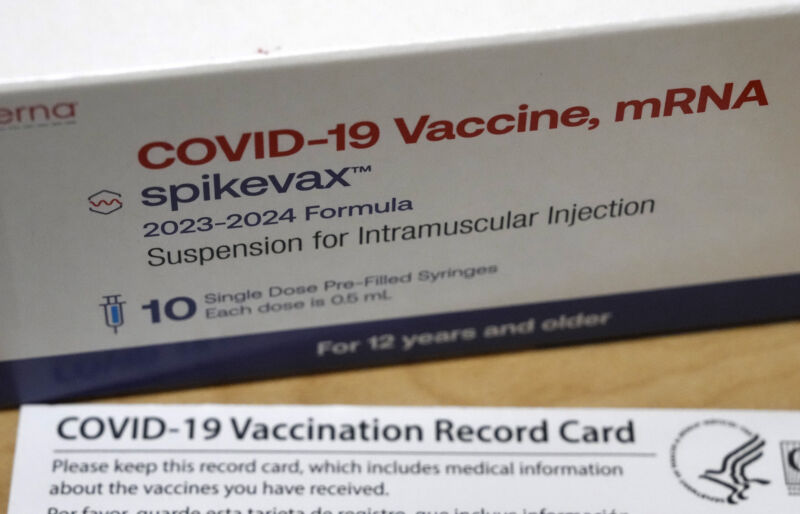
People ages 65 and up should get another dose of a COVID-19 vaccine this spring, given the age group’s higher risk of severe disease and death from the pandemic virus, the Centers for Disease Control and Prevention announced Wednesday.
Earlier today, an advisory committee for the CDC voted overwhelmingly in favor of recommending the spring booster dose. And late this afternoon, CDC Director Mandy Cohen signed off on the recommendation, allowing boosting to begin.
“Today’s recommendation allows older adults to receive an additional dose of this season’s COVID-19 vaccine to provide added protection,” Cohen said in a statement. “Most COVID-19 deaths and hospitalizations last year were among people 65 years and older. An additional vaccine dose can provide added protection that may have decreased over time for those at highest risk.”
The spring booster will be an additional shot of the 2023–2024 COVID-19 vaccines made by Pfizer-BioNTech, Moderna, and Novavax. The booster dose should be taken after at least four months have passed since a previous COVID-19 vaccination. However, as FDA representative David Kaslow noted in today’s advisory committee meeting, the FDA will likely approve a 2024–2025 version of COVID-19 vaccines for this coming fall. Given that, it’s best for people to get their spring booster dose by the end of June, so they can be ready for another booster before the winter when COVID-19 has generally peaked.
A report published earlier this month by the CDC found that the 2023–2024 COVID-19 vaccine was about 54 percent effective at preventing symptomatic COVID-19 when compared against people who had not received the latest vaccine. However, the CDC estimates that only about 22 percent of adults in the US have gotten a COVID-19 booster this season, and just over 40 percent of people ages 65 and up have gotten the shot.
People over age 65 made up 67 percent of COVID-19 hospitalizations between October 2023 and January 2024, according to CDC data presented at today’s advisory committee meeting. In early January, COVID-19 hospitalizations hit a seasonal high of about 35,000 weekly new admissions per week and nearly 2,500 weekly deaths.
The advisors debated how to word their recommendation for a spring booster and whether getting a booster should require consulting with a health care provider. But, ultimately, the committee decided on a more permissive recommendation, allowing anyone in the age group who wants a booster to be able to freely get one, including at convenient locations, such as local pharmacies.
“Data continues to show the importance of vaccination to protect those most at risk for severe outcomes of COVID-19,” the CDC said in its announcement of the recommendation. “An additional dose of the updated COVID-19 vaccine may restore protection that has waned since a fall vaccine dose, providing increased protection to adults ages 65 years and older.”
The CDC noted that its previous recommendations allow people who are immunocompromised to get additional doses of the COVID-19 vaccines.

